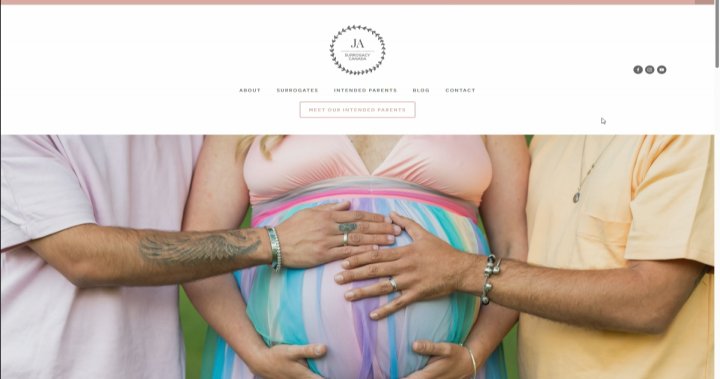An Alberta-based surrogacy agency has abruptly ceased operations following a financial review that revealed debts exceeding $150,000 and an inability to sustain the business. The unexpected closure has left intended parents and surrogates scrambling to manage ongoing arrangements amid uncertainty. With surrogacy services in Canada operating under strict government regulation but without formal licensing, this event highlights vulnerabilities within the surrogacy industry and raises concerns about the support available to families and surrogates navigating these complex processes.
Financial Troubles Lead to Sudden Closure
The surrogacy agency, which had been operating in Alberta for several years, announced its shutdown after an internal financial review disclosed debts surpassing $150,000. According to statements from the former management team, the agency faced mounting operational costs that outpaced revenue, leading to an unsustainable business model. Staff layoffs and halted services were implemented swiftly to minimize further financial losses.
Impact on Intended Parents and Surrogates
The closure has created immediate challenges for a number of intended parents currently engaged in surrogacy agreements, as well as for surrogates contracted through the agency. Many families report confusion and anxiety over how to proceed with embryos, medical appointments, and legal procedures. Surrogates expressed concerns about the continuity of their medical care and the legal support previously coordinated by the agency.
Legal experts emphasize that without the agency’s facilitation, intended parents and surrogates must independently secure legal representation and medical oversight, which can introduce delays and increase financial burdens.
Regulatory Environment Amplifies Vulnerabilities
In Canada, surrogacy is governed by federal legislation—the Assisted Human Reproduction Act—which prohibits commercial surrogacy, allowing only altruistic arrangements. However, provinces do not issue formal licenses to agencies, resulting in minimal regulatory oversight for businesses operating in this sector. This regulatory gap often leaves families and surrogates relying heavily on the competence and financial stability of private agencies.
The agency’s sudden collapse has prompted calls from advocacy groups for clearer regulatory frameworks and additional protections to safeguard vulnerable parties involved in surrogacy arrangements.
Industry Responses and Next Steps
Community organizations supporting assisted reproduction have mobilized to provide interim guidance to affected parties. They recommend that those impacted seek legal advice promptly to clarify rights and obligations. Medical professionals involved in surrogacy programs are also collaborating to ensure continued care for surrogates.
Meanwhile, the Alberta health authorities have indicated they are reviewing the incident to assess whether policy adjustments are needed to prevent similar occurrences. Parents and surrogates are advised to monitor official communications for updates regarding support services.
The abrupt closure of the Alberta-based surrogacy agency underscores significant challenges within the Canadian surrogacy sector, particularly the financial vulnerabilities faced by private agencies operating without formal licensing or robust regulatory oversight. This event has disrupted numerous surrogacy arrangements, leaving intended parents and surrogates to navigate complex legal and medical processes without the agency’s support. The situation has sparked calls for enhanced regulatory frameworks and improved protections to ensure stability and reliability in surrogacy services. In response, community organizations and health authorities are taking steps to support those affected and to evaluate potential policy reforms aimed at safeguarding the interests of all parties involved in surrogacy arrangements in Canada.

